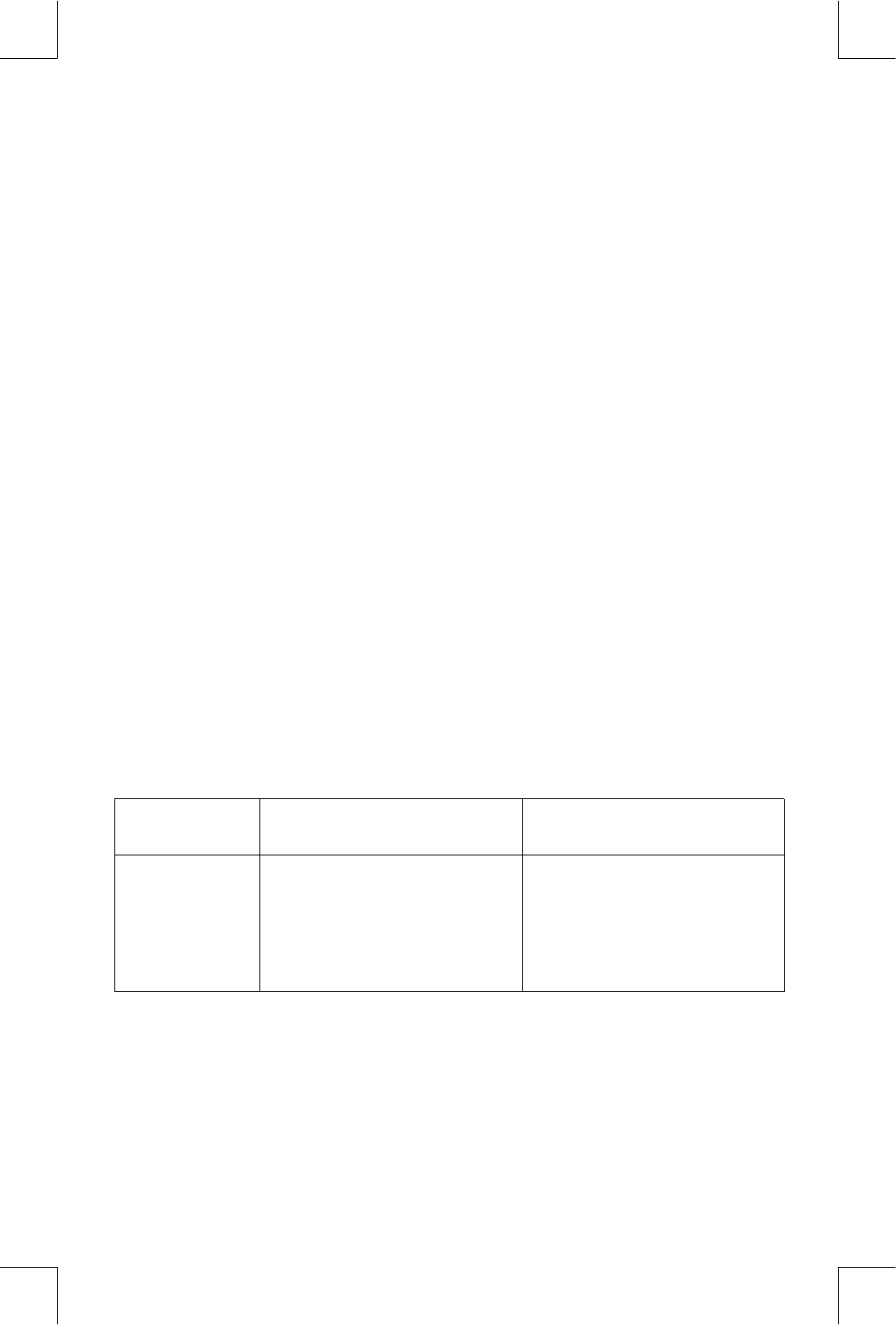
Base Conversions and Arithmetic 10–5
File name 32sii-Manual-E-0424
Printed Date : 2003/4/24 Size : 17.7 x 25.2 cm
546
z
w
{
%
}
Enters a positive, decimal
number; then converts it to
hexadecimal.
_
2's complement (sign
changed).
z
w
{
}
Binary version;
indicates
more digits.
<
<
Displays the leftmost
window; the number is
negative since the highest bit
is 1.
z
w
{
}
.)
Negative decimal number.
Range of Numbers
The 36-bit word size determines the range of numbers that can be
represented in hexadecimal (9 digits), octal (12 digits), and binary bases
(36 digits), and the range of decimal numbers (11 digits) that can be
converted to these other bases.
Range of Numbers for Base Conversions
Base Positive Integer
of Largest Magnitude
Negative Integer
of Largest Magnitude
Hexadecimal 7FFFFFFFF 800000000
Octal 377777777777 400000000000
Binary 011111111111111111111
111111111111111
100000000000000000000
000000000000000
Decimal 34,359,738,367 –34,359,738;368
When you key in numbers, the calculator will not accept more than the
maximum number of digits for each base. For example, if you attempt to key
in a 10–digit hexadecimal number, digit entry halts and the
£
annunciator
appears.


















